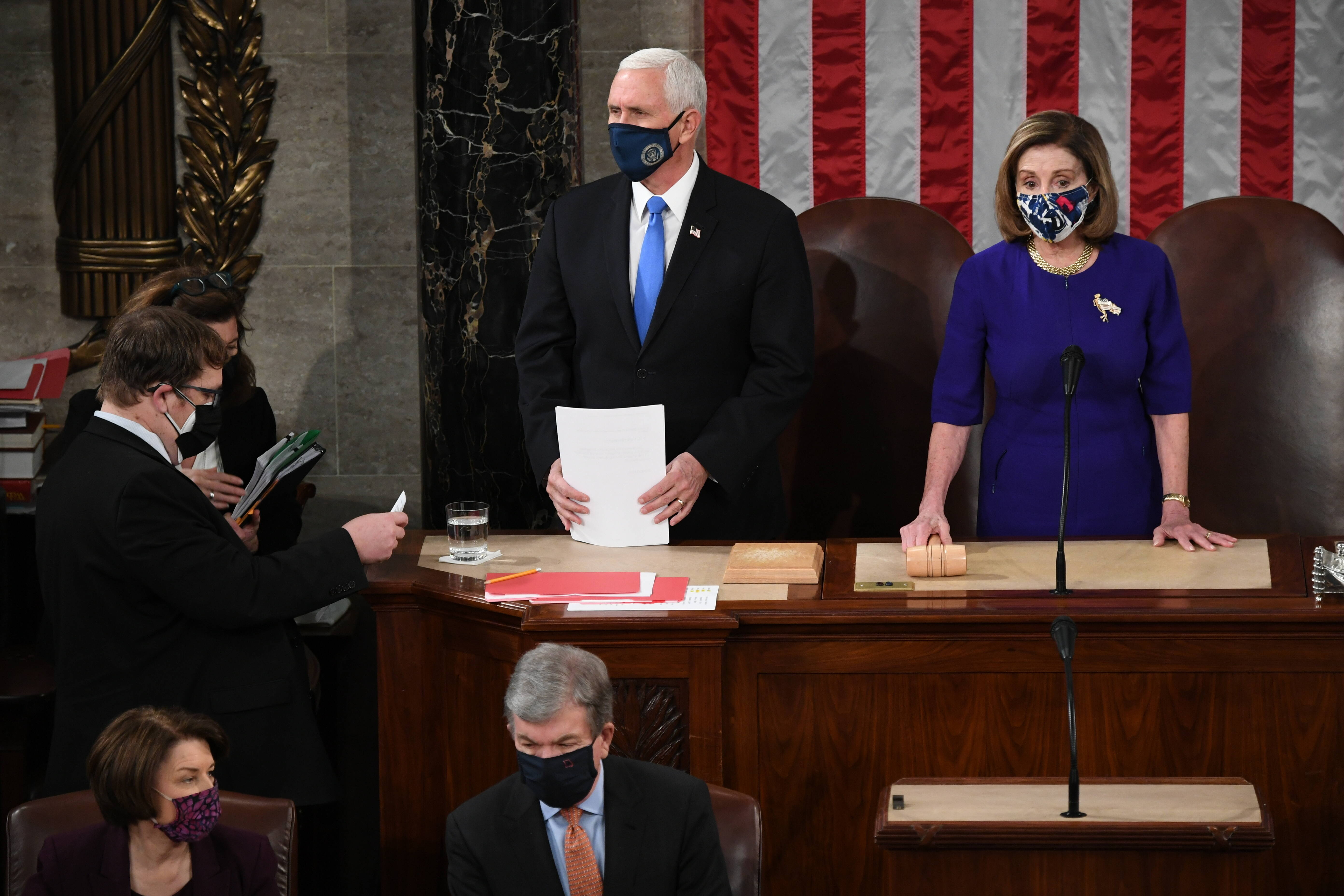| He didn't try to hide his desire to steal the election. But President Donald Trump's efforts to stay in power in 2020 can be hard to grasp, because they were such a shock to the system and because they happened on so many levels. More than a year later, we keep learning more about how he tried. To put all the news in context, let's step back to review what we know about Trump and his allies' efforts to overturn the 2020 election. He laid the groundwork months ahead of time: Trump claimed early that widespread voting by mail would undoubtedly lead to voter fraud. A BBC review found he started doing this as far back as April. "RIGGED 2020 ELECTION: MILLIONS OF MAIL-IN BALLOTS WILL BE PRINTED BY FOREIGN COUNTRIES, AND OTHERS," he tweeted in June. "IT WILL BE THE SCANDAL OF OUR TIMES!" He set out a legal army to challenge his losses: Trump and his allies lost in the courts resoundingly, including at the Supreme Court. Eighty-six judges across the country and across the political spectrum rather easily batted those cases away. But Republicans still think they have cover to claim there were "questions" about the election.  Trump backers at an appearance by the former president last month in Florence, Ariz. (Mario Tama/Getty Images) | He pressured state legislators to change the results: Trump urged top Republican legislators in states he lost to somehow vote to void or change the results so that he would have their electoral votes. He called the governor of Arizona as he was in the middle of certifying results, notes The Post's Philip Bump. (The governor sent Trump to voice mail.) He attacked the governor of Georgia. He hosted top Michigan Republicans at the White House. He urged local election officials to deny certification of results: The closest he got was in Detroit, where two Republicans initially refused to approve of county election results. He pressured Georgia's secretary of state: Specifically in an hour-long phone call to "find" just enough votes so that he wold win, long after state officials had certified results for Joe Biden's win. His allies set up fake electors in states: And they in some cases baselessly claimed they were the real electors. He cheered on Republicans who asked the Supreme Court to overturn his loss: It was a baseless request led by Texas, yet more than half of House Republicans signed on to support it. He pressured his vice president to overturn the results: We know from the book "Peril" that Mike Pence considered it. He encouraged his backers to march to the Capitol on Jan. 6 and waited hours to call off the mob in the ensuing attack: He even called them "special people." This weekend he mused about pardoning some of those convicted in the attack if he were president again, something the top Senate Republican didn't object outright. He considered seizing states' voting machines: The New York Times just reported he was personally involved in asking several federal agencies to do it, with some in his orbit even suggesting the military swoop in to do it. He entertained people proposing martial law: Specifically MyPillow's Mike Lindell, who was photographed entering the White House in January with a document that referred to "martial law if necessary."  Trump with MyPillow CEO Mike Lindell in March 2020. (Jabin Botsford/The Washington Post) | He continues to push Republicans to lead audits of election results: And in states as red as Idaho. Election officials say these efforts serve only to undermine legitimate results. It seems as if Trump pulled on every lever that was possibly available to him. His efforts were largely ham-handed, but they were unrelenting. We could learn much more in the coming months, when the congressional Jan. 6 committee hopes to release a full report on its investigation. Why everyone's talking about Pence and Jan. 6 all of a sudden  Pence on Jan. 6, 2021, before Trump supporters breached the building, some looking for him and threatening his life. (Saul Loeb/Pool/AP) | "He could have overturned the Election!" Trump said this weekend of his former vice president — in a statement he kind of tried to walk back today. Trump's talking so much about this now because Congress is talking about closing any loophole in federal law when it comes to what role the vice president plays in counting up election results. Actually, there isn't a loophole — a bipartisan group of senators is just considering making that extra clear with specific changes to the 1880s Electoral Count Act. Senators are talking about that now because Democrats' efforts to create federal standards for elections failed. But a year after the attack on the U.S. Capitol, there has been precisely zero legislation in Congress to prevent it from happening again. So, Congress seems open to at least legislating its own role in certifying the elections. "It is flawed and does need to be fixed," Senate Minority Leader Mitch McConnell (R-Ky.) said today of the stodgy law. A likely factor in Republicans' endorsement of this idea: As Congress certifies the winner of the 2024 election, it will be Vice President Harris presiding over things. The GOP's response to Democrats' identity politics Biden said he'd pick a Black woman for the Supreme Court, a reflection of how there has never been a Black woman on the court before and of how Black women form his political base. In doing so, he reignited the identity politics debate raging in America — whether liberals have gone too far in embracing identity and whether conservatives ignore America's problematic history with race. But some Senate Republicans are taking what could be a popular message on the right and twisting it into an almost racist line of attack against Biden's to-be-determined pick — that she will be picked only because she's Black. Sen. Roger Wicker (R-Miss.) declared this person would be the "beneficiary" of affirmative action. Sen. Ted Cruz (R-Tex.) said Biden's promise is offensive: "Black women are what, 6 percent of the U.S. population? He's saying to 94 percent of Americans: 'I don't give a damn about you. You are ineligible.'" Wicker and Cruz, somewhat predictably, went over the top in their criticism, in ways that could help Democrats attack the GOP in the 2022 elections as unfriendly to women of color. | 






No comments:
Post a Comment